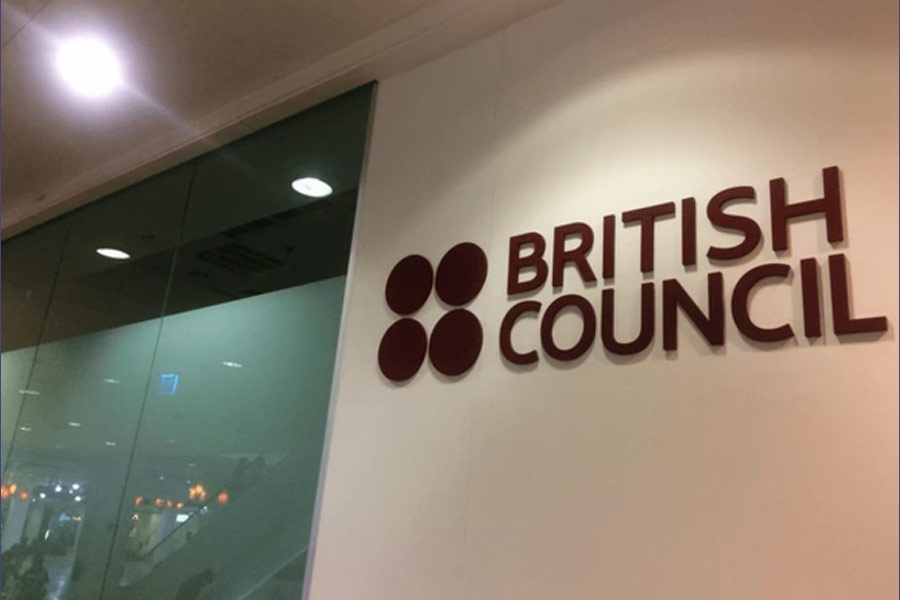The British Council on Wednesday released a collection of 90 words, including 'babysitter', 'gay', 'artificial intelligence', 'woke', 'edgelord', and 'Barbiecore' that have come to define the last nine decades since the 1930s.
The list of influential words, released on the occasion of the 90th anniversary of the UK's international organisation for cultural relations, explores how the English language has evolved, reflecting societal, cultural, and technological changes over the years.
Curated by Dr. Barbara McGillivray, an expert in computational linguistics and digital humanities, the 90-word collection highlights English as a powerful connector of people and cultures, "looking at how English responds to the needs of those who use it".
The final 90 words, selected through a process which combined computational methods and expert curation, highlight the societal, cultural, technological, political, and environmental developments that have shaped the English language from 1934 to 2024.
The key themes that are reflected in the list include the rise of global English, the influence of science and technology on language, the intersection of entertainment and language, the impact of COVID-19 on English, equality, diversity and inclusion.
"I'm always amazed at how language evolves with the times. While compiling 90 new words and meanings for the British Council's 90th anniversary, I was struck by how profoundly technology reshapes communication and how fast these changes happen. Take e-book or doomscroll: these words capture how much tech has changed our lives.
"But it's not just a tech driving language. Social and cultural changes are just as fascinating. Words like intersectionality and glass ceiling reflect important conversations about equity and representation, shaping change as much as describing it," McGillivray said in a statement.
In the 1930s, the list of words captured societal shifts and innovation with terms like 'babysitter' that reflected evolving family roles, 'evacuate' echoed wartime impact and 'nylon' marked material breakthroughs. 'Gay' redefined identity and 'jukebox' highlighted African American music influence, shaping modern conversations.
The 1940s were shaped by war and emerging lifestyles, giving words like 'nuclear', 'bikini', 'blockbuster','vegan', 'staycation', and 'cool' to common parlance.
While words like 'disco' and 'rock'n'roll' defined a musically thriving decade of the 50s, 'artificial intelligence' too found takers, revealing evolving interactions with technology and leisure.
'Baby boomer', 'Bollywood', and 'hippie' in the 1960s reflected transformative cultural shifts, the language in the 70s captured tech advances, social critique and rebellion with terms like 'app', 'virus', as well as musical innovations in 'punk', 'hip hop' and 'karaoke'.
"This collection of 90 words is more than a celebration of language, it's a testament to how English evolves alongside us, capturing the spirit of each era and generation. At the British Council, we are committed to fostering a deeper global understanding of the English language.
"Language is more than a tool for communication, it's a powerful force that connects people, reflects cultures, and drives change. With this, we hope to spark meaningful conversations about how shifts in culture and communication drive changes in the English language," Gauri Puranik, head of English programmes India, the British Council said.
The list marks the arrival of the digital age in the 1980s as terms like 'cell phone', 'virtual', 'e-book' and 'hacking' became a part of the vocabulary. Language in the 1990s continued to capture the digital boom and social awareness with words like 'web' and 'Google' signalling the internet's rise, 'carbon footprint' underscored environmental concern while 'emoji' and 'blog' introduced new self-expression forms, reshaping communication.
The list registers the turn of the millenia with words that reveal digital impacts on media and social dynamics.
In the 2000s, 'hashtag' and 'selfie' highlighted social media culture, 'crowdfunding' and 'podcast' fostered new interactions while 'Nollywood' celebrated global cinema and 'mansplain' challenged gender norms.
While 'catfish' and 'deepfake' addressed online deception in the 2010s' vocabulary, 'ghosting' and 'situationship' reframed dating, and terms like 'woke' and 'forever chemicals' showcased rising social justice and environmental consciousness.
Pop culture, effects of the pandemic and digital habits have became an essential part of the language in the 2020s. While 'Barbiecore' and 'bubble' reflected aesthetic trends and pandemic vocabulary, 'doomscroll' highlighted digital anxieties and 'rizz' showcased evolving dating slang, revealing modern fascinations.
Except for the headline, this story has not been edited by The Telegraph Online staff and has been published from a syndicated feed.











